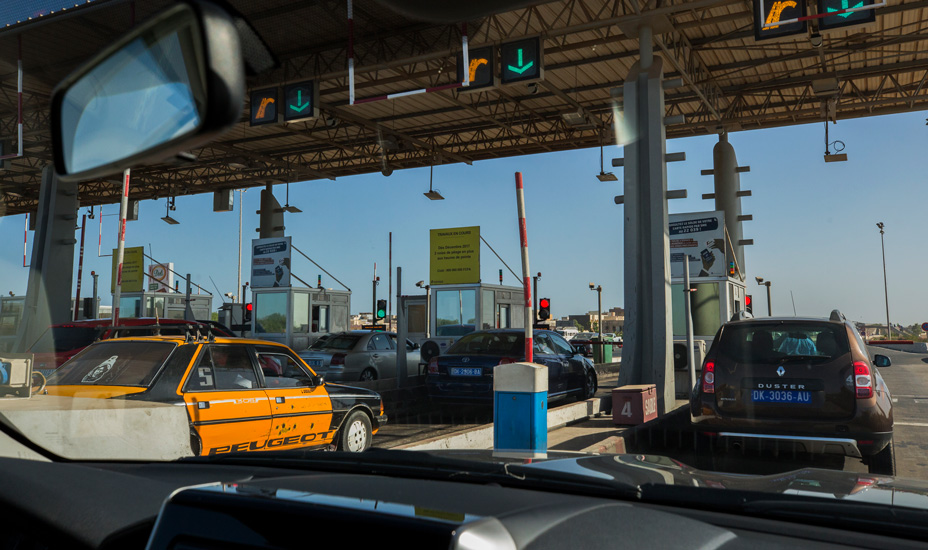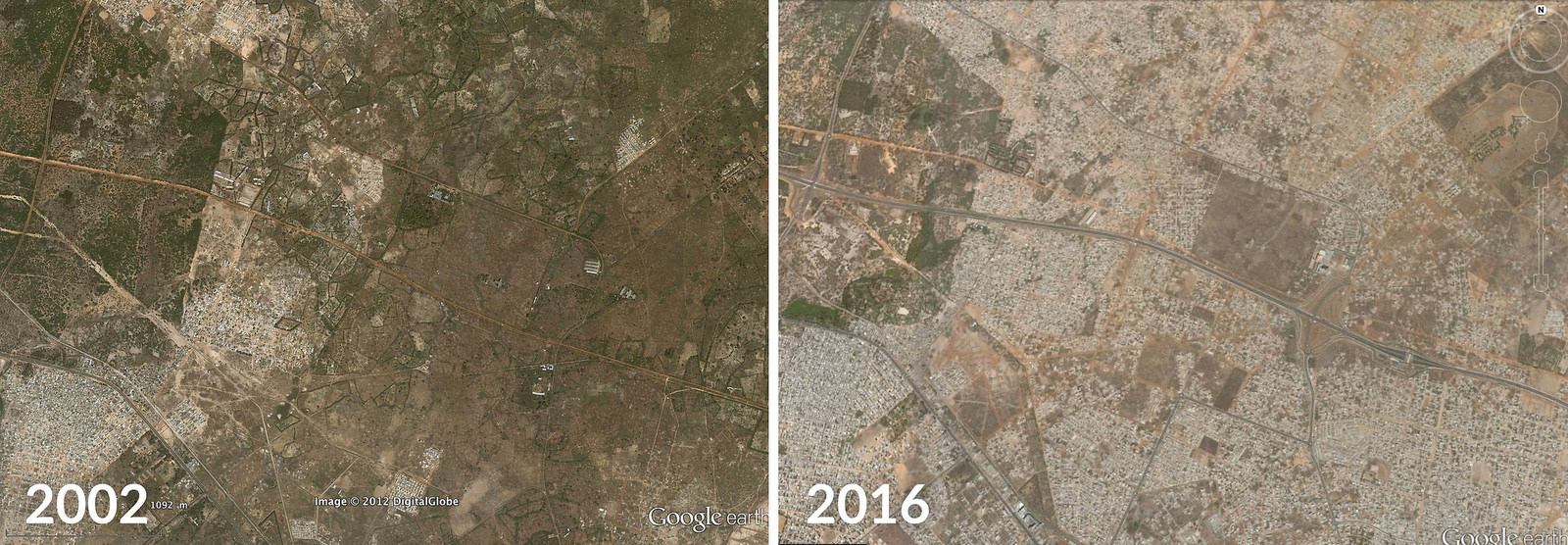
This story is part of a series on IFC’s work to help create markets that give new opportunities to people in developing countries. These innovative approaches have helped solve some of the largest problems in countries or, sometimes, entire regions.
Also available in: French
 By Inaê Riveras, IFC Communications
By Inaê Riveras, IFC Communications
DAKAR, Senegal—Workers battling bumper-to-bumper traffic to get to jobs in Dakar used to pay a heavy price for the region’s chronic congestion: their time was wasted, their cars broke down often, and they arrived at work exhausted by the long commute. For businesses like Ruf Universel Service, a transportation company in nearby Rufisque, the costs associated with unmanageable traffic were quantifiable.
Longer-than-expected trips often led to an increase in fuel costs and truckers’ wages. Frequently, the company incurred daily fines imposed by clients whose cargoes missed their arrival deadlines. “When you have a 40-ton truck, delays can mean thousands of dollars in penalties a day,” says the firm’s manager, El Hadji Djibril Mbengue.
The highway—the first public-private partnership (PPP) for a greenfield toll road in West Africa—was completed in two phases, both supported by IFC. The first section, a 24-km stretch from Dakar to Diamniadio that was inaugurated in 2013, slashed commuting time between the two cities from more than two hours to about 30 minutes.
The success of the first section led to an extension of the toll road, also structured as a PPP. The second stretch, commissioned in 2016, extended access from Dakar to the newly inaugurated international airport in the region of Thiès and created a faster route from the capital to seaside resorts in Saly, an important source of employment and income for the country.
More than Mobility
In Greater Dakar, traffic problems have long been a roadblock to progress. And because the region’s economic performance reverberates throughout Senegal, better urban mobility is crucial to local as well as national prosperity. Regional growth projections show that the urban center’s population may double to 5 million by 2030, and most of the expansion is expected to take place in the outer suburbs of Dakar. The area is already home to more than a quarter of the country’s population and contributes to about 60 percent of its GDP.
Traffic management is a priority in this context. “As soon as you improve urban mobility, the entire economy benefits,” says Dominique Ndong, Deputy Director of APIX, the government’s investment promotion agency.
Studies of the new toll road bear this out. A recent APIX report indicates that nearly 60 percent of the companies in the area have profited through access to a larger distribution area, increasing their competitiveness.
The impact on the local economy is visible for anyone driving along the road—especially those who remember waiting hours in traffic. “The bottleneck has disappeared and allowed the area to be developed,” says Didier Payerne, Director of Development for Africa at Eiffage, the French group that won the 30-year concession to build, finance, operate, and maintain the road. “Now we see houses, new cities, industries sprouting up along the highway.”
The PPP—which created more than 300 permanent jobs and 1,000 during construction—has benefited public transportation, with positive outcomes for users and for the government. Living conditions for residents have also improved as middle-income families gained access to affordable housing options outside of Dakar’s costly urban market. Other much-needed public works programs, such as anti-flooding initiatives, were developed alongside the toll road.
Knowledge-sharing between Eiffage’s staff in France and Senegal has been another plus. Four years after French highway experts first visited the project to train local workers on toll road operation—a profession that did not exist in the country—Senegalese engineers recently traveled to train French employees on how to use a software system they developed.
The Road Now Taken
Easing traffic congestion and stimulating development on the outskirts of Dakar were among IFC’s initial objectives for the PPP. IFC acted as the lead arranger and global coordinator for the two debt packages provided to SENAC, the Senegalese concession company set up by Eiffage.
"The extension of the toll road demonstrated the replication effect of the first project," says IFC investment officer Juliette Rose. “It’s been quite the transformation: you see construction everywhere. It’s effectively moving activity out of Dakar to the outskirts.”
IFC investments in the two phases of the toll road—part of a broader World Bank-led project in Senegal—amounted to €26 million. An additional €50 million was arranged and mobilized by IFC from the Western African Development Bank, the African Development Bank and CBAO, one of the main Senegalese commercial banks.
The project created a new benchmark for transportation infrastructure in Sub-Saharan Africa . It also helped increase confidence that governments in the region can engage the private sector to help resolve large-scale challenges like urban congestion.
For Ruf Universel Services, which for 25 years has been transporting chemicals from the port of Dakar to factories and power plants on the outskirts of the city, the toll road helps save time and money. Quicker trips resulted in an average fuel savings of 20 percent, along with better conditions for company drivers and rewards from clients for deliveries done ahead of schedule.
It all adds up to a green light for Ruf Universel Services, which is now considering an expansion of its fleet. “More trucks mean more business,” says Mbengue, the company’s manager.
Follow the conversation: #IFCmarkets
Published in February 2018
